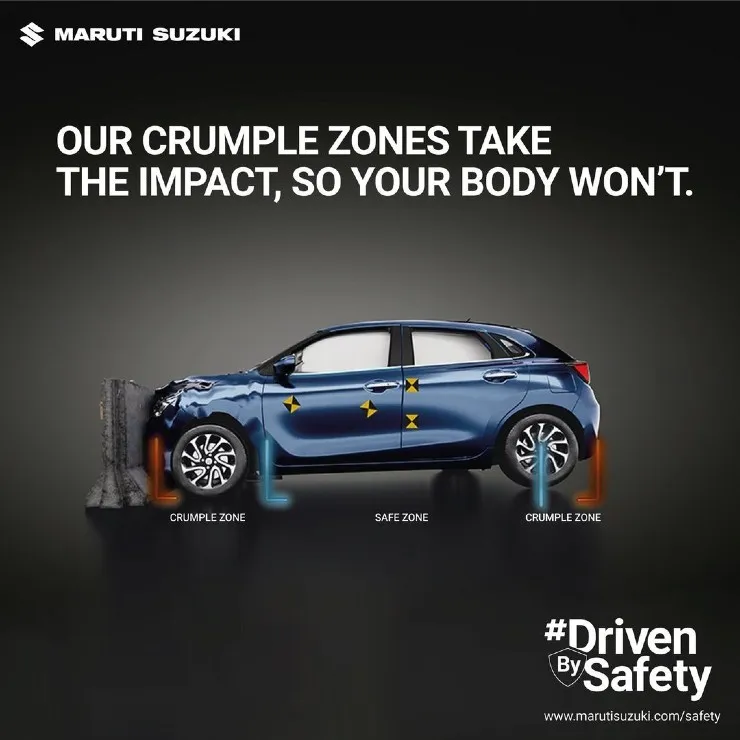Via its social media posts, Maruti Suzuki has started highlighting its safety standards by letting people know about the crumple zones. These are automotive parts that are intended to absorb and spread energy during a collision. These zones are situated in the front and rear of the vehicle.
Crumple zones are made of developed materials that flex and absorb the impact energy. This lessens the impact force on the occupants in the car and reduces the danger of catastrophic injury.
Crumple zones work by allowing the car to absorb the impact energy in a regulated manner. When a car collides with another object, the crumple zones collapse and absorb the impact energy and slow down the motion of the car.

The crumple zones are built with materials such as high-strength steel. It makes these critical impact zones more resilient and capable of withstanding the power of a collision. Manufacturers are aware of this because of intensive crash testing to ensure that crumple zones perform as intended.
According to a new study article, frontal collisions account for 30% of all accidents. Assessing the capabilities of an automobile structure under a crash is critical. This has to be done in the early design phase to assure safety and fuel economy. Simulations can be used to find areas of design improvement and optimise designs for safety. Simulation can also be used to assess and optimise the performance of safety measures such as airbags.
The importance of maintaining passenger safety in car accidents cannot be emphasised. It is critical to design the vehicle construction to resist impact loads while limiting passenger injury. Crash simulation is a powerful tool for evaluating the safety performance of car designs. It is an essential aspect of the design process for all passenger cars to assure driver and passenger safety.
2023-03-17 01:14:11
